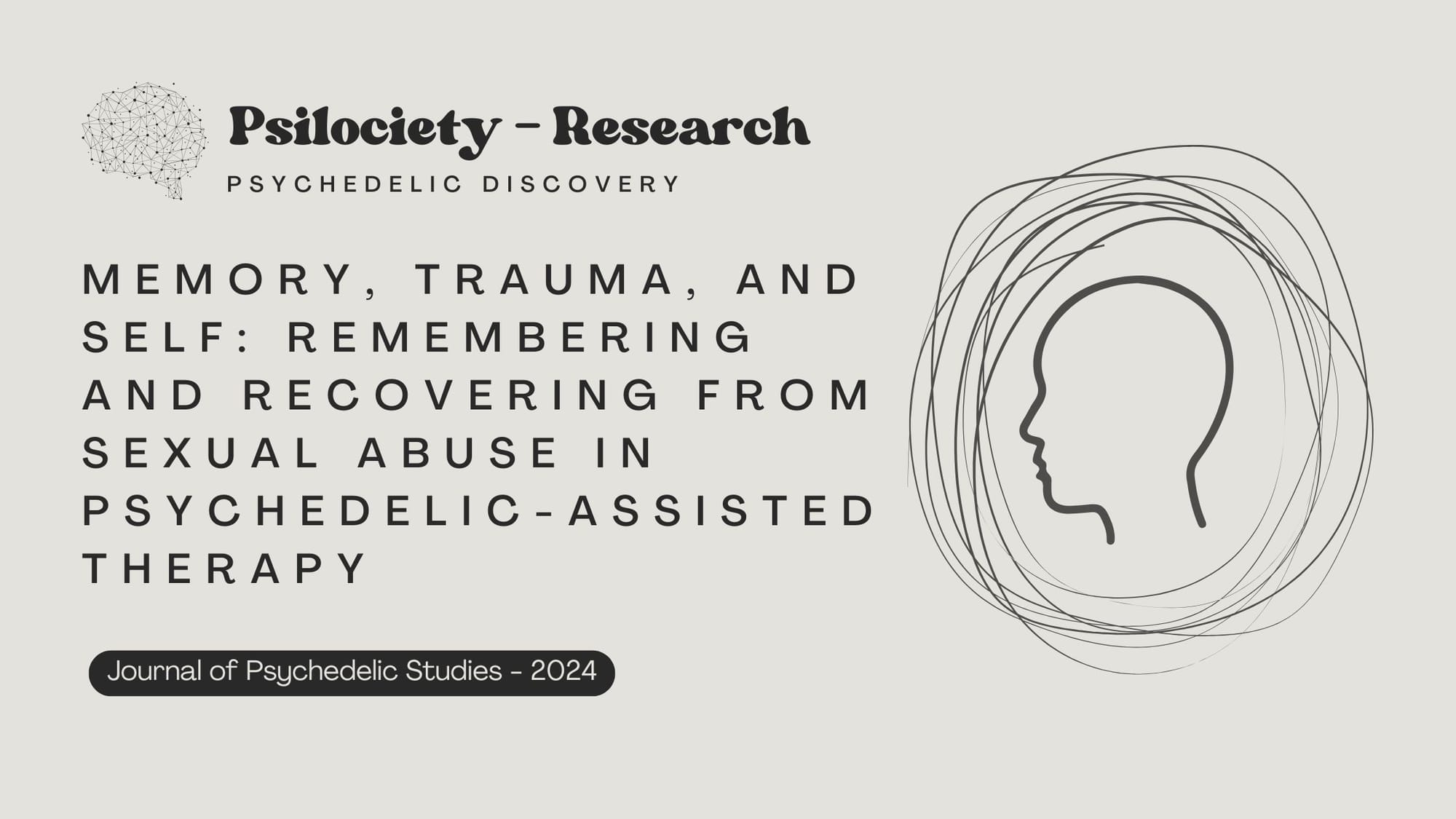Memory, Trauma, and Self: Remembering and Recovering from Sexual Abuse in Psychedelic-Assisted Therapy
This study explored the therapeutic role of psilocybin in helping individuals recover from sexual abuse-related PTSD by focusing on the interplay of memory retrieval and narrative reconstruction in healing.

Title & Introduction
- Paper Title: "Memory, Trauma, and Self: Remembering and Recovering from Sexual Abuse in Psychedelic-Assisted Therapy"
- Published In: Journal of Psychedelic Studies, 2024
- Authors: Jarrett Robert Rose
- Objective/Research Question: This study explored the therapeutic role of psilocybin in helping individuals recover from sexual abuse-related PTSD by focusing on the interplay of memory retrieval and narrative reconstruction in healing.
Key Background Information
- Context: PTSD, particularly when linked to sexual trauma, often resists conventional treatments like pharmacotherapy or cognitive therapy. Psilocybin, a classic psychedelic, shows promise in alleviating PTSD symptoms by facilitating memory integration and self-narrative transformation.
- Hypothesis: Psilocybin may enable the conscious retrieval of repressed trauma, allowing survivors to reframe their identities and achieve psychological healing.
Methodology
- Study Design: Qualitative case study.
- Participants: Two women with decades-long, treatment-resistant PTSD stemming from sexual trauma.
- Intervention: Weeklong psilocybin-assisted therapy retreat in Jamaica, involving guided psychedelic sessions under professional supervision.
- Controls: None, as this study was exploratory and narrative-focused.
- Duration: One year follow-up post-retreat with in-depth, semi-structured interviews.
Key Findings
- Memory Retrieval: Psilocybin helped participants access repressed memories of childhood sexual abuse. For example:
- "Annie" vividly recalled previously repressed childhood abuse, which she linked to her lifelong struggles with weight and depression.
- "Carrie" experienced a metaphorical reenactment of her trauma, leading to a symbolic transformation of her self-concept.
- Self-Narrative Reconstruction:
- Participants redefined their personal histories in a more compassionate and empowering light.
- Both women developed healthier relationships with themselves and their traumas, exemplifying the transformative impact of narrative revision.
- Emotional Relief and Catharsis: Both participants reported profound emotional breakthroughs, including forgiveness and self-acceptance.
- Sustained Impact: While significant improvements in mental health were noted, challenges like depressive relapses highlighted the need for continued support.
Interpretation & Implications
- Conclusion: Psilocybin’s ability to unlock repressed memories and encourage narrative reorganization holds significant therapeutic potential for PTSD.
- Implications: These findings underline the importance of integrating narrative therapy into psychedelic treatment frameworks and advocate for more extensive research into memory’s role in healing trauma.
- Limitations: The small, homogeneous sample limits generalizability, and long-term outcomes require further investigation.
Key Takeaways
- Core Insight: Psilocybin can act as a catalyst for recovering repressed trauma and reconstructing healthier self-narratives.
- Practical Application: Future therapeutic models should combine psychedelics with sustained narrative and emotional support for complex PTSD cases.
Researchers & Publication
- Authors: Jarrett Robert Rose
- Journal: Journal of Psychedelic Studies, 2024
- Study URL: https://doi.org/10.1556/2054.2024.00363

